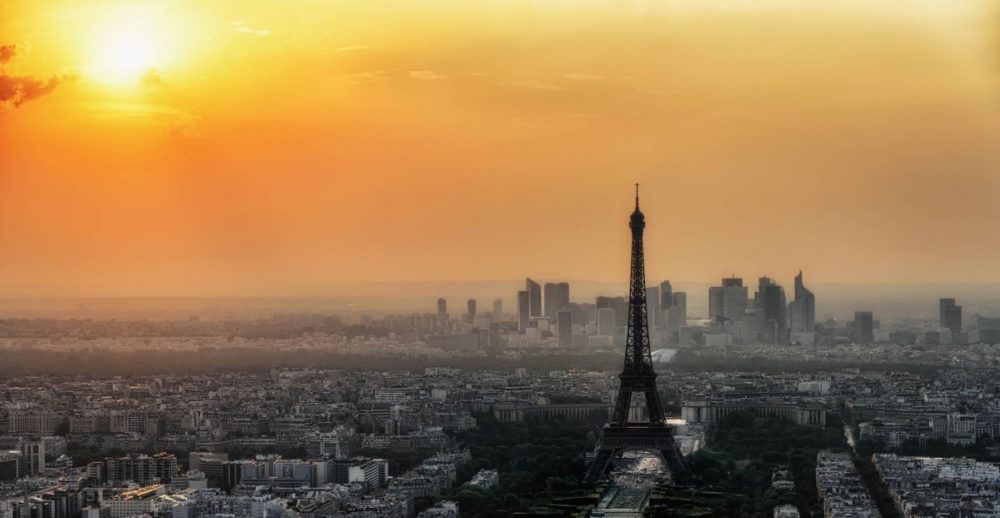My father was an army sergeant and my mother was an intelligence officer during World War II. They talked vividly and proudly about the war years; it was the defining time of their lives, when they witnessed, and in small ways, participated in the making of history.
I have often wondered whether my generation would ever have a comparable opportunity to define itself. What great cause would we be able to tell our children about? What would we accomplish that historians would look back upon as a turning point?
With the climate agreement in Paris, we may now have an answer. If we make good on its promise, we will have changed the course of history and demonstrated, for the first time ever, the power of an entire world united in a common cause.
Paris Agreement acknowledges climate reality
The agreement is the culmination of years of work by so many. Scientists who amassed data to prove to a skeptical world that that the burning of fossil fuels causes grave harm to the planet. Faith leaders and activists who decried the immorality of leaving an overheated world behind for the next generations. Businesses that developed low-cost alternatives to fossil fuel energy. State and local leaders who experimented with policies like cap-and-trade and renewable energy standards, and proved that they work. And, I am proud to say, groups like UCS, which has persuasively warned of global warming’s impending danger for many years, and successfully pushed for policies like the doubling of fuel economy standards in cars and trucks and limits on carbon pollution from power plants that put the United States in a position to lead in the negotiation.
Sadly, also propelling an agreement is the never-ending march of grim events that gives us glimpses of a future of runaway warming. In the past year or so, we saw heat waves in India and Pakistan, record-breaking typhoons in Asia and Mexico, droughts and fires in Africa, Australia, and the American west, and flooding in many cities even when the sun is shining.
High-ambition carried the day
All of this brought the world’s leaders to Paris, where they set aside hardened positions to focus on the common goal of preventing catastrophic climate change. As an American, I am particularly heartened that President Obama and Secretary Kerry played critical roles in helping to lead a so-called “high ambition coalition” that secured many key elements of the deal.
The agreement has many of the essential components for success. It establishes an ambitious long-term goal to limit temperature increases by phasing out fossil fuels over time. To make a “down payment” on that goal, it compiles pledges by 195 countries (itself a historic first) to cut global emissions within the next 10 to 15 years. Because these cuts get us only part of the way, the agreement requires countries to review their pledges every five years and raise their ambition level. The agreement also calls for a common set of monitoring, verification, and reporting procedures. Countries that don’t meet their pledges can therefore be “named and shamed” – giving some teeth to what is otherwise essentially a voluntary agreement. Finally, wealthier countries that have benefitted the most from burning fossil fuels are importuned to provide funds and technology to help poorer countries lower their emissions and adapt to what is to come.
Paris agreement can only succeed with powerful action
But, as important as it is, this agreement matters only if it truly spurs change at a scale we have never seen.
The Union of Concerned Scientists will continue to play its vital role in making history, as we have for over forty years. Knowing that ongoing U.S. leadership remains critical, we will push for the next level of policies that will raise our ambition level, like putting a price on carbon, ending fossil fuel subsidies, and doubling our investment in clean energy research and development at the federal level, while encouraging many new states to welcome cleanly generated electricity and vehicles that run on it. We will put our scientists to work to devise better policies to preserve and enhance forests and farms and their ability to absorb the carbon we emit. And we will demand change from those who stand in the way of progress, like large oil companies that cling to their fossil fuel reserves.
I heard many stirring speeches at the Paris negotiations. The best one was by Al Gore; as he ended, he quoted these lines from a poem by Wallace Stevens:
After the final no there comes a yes,
And on that yes the future of the world depends.
In Paris this week, the world finally said “yes.” May that yes define our times.
Feature photo by Joe deSousa.

